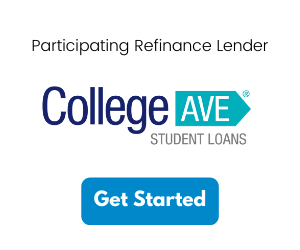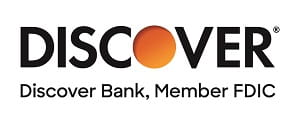Thinking about a career in healthcare, such as nursing? Opting to become a nurse can be incredibly fulfilling. Nurses play a vital role in healthcare, providing essential care and support to those in need during some of their most vulnerable times. This career path allows you to make a significant difference in people's lives, offering profound personal satisfaction. However, it's important to acknowledge the financial hurdles that accompany this journey.
Pursuing a nursing career requires a major commitment of time, energy, and financial resources. Whether you're working towards an Associate Degree in Nursing (ADN), a Bachelor of Science in Nursing (BSN), or even higher degrees like a Master of Science in Nursing (MSN), the educational path is rigorous. The costs associated with nursing education can be hefty, covering tuition, books, uniforms, necessary tools, and potentially housing and living expenses. Despite these challenges, the pursuit is worthwhile. The skills and knowledge you gain will equip you to provide exceptional care and make a meaningful impact on patients' lives.
Even though the financial and educational demands might seem overwhelming, remember that investing in your nursing education is an investment in a future where you can touch countless lives positively. The personal and professional satisfaction you get from helping others and being part of their recovery journey is priceless. By choosing to become a nurse, you not only take on a vital role in healthcare but also start on a rewarding career where every day brings the opportunity to make a difference.
For aspiring nursing professionals, there's encouraging news. There are ways to lighten that financial load. Scholarships and grants serve as valuable resources, providing funds that do not require repayment. These financial aids are offered by diverse organizations and educational institutions for a multitude of reasons such as academic excellence, community engagement, or needing a little extra financial help. Additionally, loans present another viable option for those seeking additional financial support.
Federal Loans for Nursing School
Starting with federal student loans is recommended for nursing students. Not only do federal student loans provide benefits like Public Student Loan Forgiveness (PSLF), but you may also qualify to participate in an income-driven loan repayment plan, which could make it easier to pay for your bills and other expenses after finishing nursing school.
Subsidized Student Loans
Direct Subsidized Loans are federal loans that undergraduates can borrow at a low, fixed interest rate. The government pays the interest on these loans when you are enrolled in school at least half-time, during the grace period, and during periods of authorized deferment. You must demonstrate financial need to qualify for direct subsidized loans. If you meet eligibility requirements, we recommend exhausting this type of loan first because it is the least expensive federal student loan.
Unsubsidized Student Loans
Direct Unsubsidized Loans are federal student loans that undergraduate, graduate, and professional nursing students can borrow. These loans also come with low, fixed interest rates. Unlike the aforementioned Direct Subsidized Loans, demonstrated financial need is not necessary to qualify. However, you are responsible for paying off all interest accrued on unsubsidized loans.
Grad PLUS Loans
Grad PLUS Loans are available to graduate and professional nursing students. These federal loans offer a fixed 9.08% interest rate for the 2024 - 2025 school year, and there are flexible loan limits. To qualify for a Grad PLUS Loan, you must not have an adverse credit history.
The Grad PLUS Loan has a current origination fee of 4.228% which is deducted from your loan amount before any funds are sent to your school. The annual borrowing limit is your Cost of Attendance (COA) minus other financial aid received.
Health Resources and Services Administration (HRSA) Nursing Student Loan
Health Resources and Services Administration loans, or HRSA loans, are low interest, long-term loans offered to students in need who are pursuing a health professions degree like nursing. There are four loan programs. One is specifically geared for nursing students.
Nursing Student Loans (NSL)
Nursing Student Loans are for full-time nursing students with financial need who are pursuing an associate, baccalaureate, or graduate degree in nursing at an eligible school. Your school is eligible as long as it offers a degree in nursing.
To apply for the Nursing Student Loan program, you must fill out the application on the HRSA website. If you have additional questions about the NSL program, you can contact the program through their website.
Best Private Student Loans for Nursing School
Private student loans are available for aspiring nurses that need additional funding to cover the cost of attendance and other education-related expenses. If you have a good credit score, a student loan for nursing could afford you a lower interest rate. We work with some of the best lenders in the industry, and we have made it easy for you to compare student loans for nursing school.
Federal vs Private Student Loans for Nursing School
| Compare Terms | Federal Student Loans | HRSA Nursing Student Loan | Private Student Loans |
|---|---|---|---|
| Interest Rate Options | Fixed interest rates | Fixed interest rate | Fixed or variable rate options |
| Interest Rate Criteria | Determined by the federal government each award year | 5% | Depends on your credit score |
| Origination Fees | Federal Direct Stafford: 1.057 Direct PLUS: 4.228 (for loans disbursed Oct. 1, 2024 through Sept. 30, 2025 | None | Low to none depending on your credit score |
| Repayment Terms | Variety of federal plans to choose from, including 10-year standard and income-driven repayment plans | Up to 10 years | Usually 5 to 25 years depending on the terms and conditions offered on your loan |
| FAFSA Required? | Yes | Yes | No, but it is recommended |
| Student Loan Forgiveness or Discharge Options | Federal forgiveness and discharge options are available, including Public Service Loan Forgiveness | Eligible for death and total and permanent disability discharge | Offerings may vary by lender and circumstances |
| Grace Period | 6-month grace period | 9-month grace period | 6-month grace period may be an option, however, repayment terms are set by the lender |
| Cosigner Release Options | A Direct PLUS loan may require you to apply with a cosigner, however, no cosigner release options are available under the federal student loan program | N/A | Cosigner release options vary by lender and borrower credit history |
| Lending Institution | Federal government | Participating school | Lender may be a bank, credit union, financial institution, state agency, college or university |
Financial Aid for Nursing School
We strongly recommend filing the Free Application for Federal Student Aid (FAFSA). Not only is it necessary for determining eligibility for federal financial aid, but many colleges, universities, and state governments use it to award institutional and state financial aid as well. You can complete this application online or at your campus financial aid office. It doesn’t matter if you are enrolled in an undergraduate or graduate level nursing degree program. Financial aid options are available for both.
Grants for Nursing School
Getting a grant for nursing school can help minimize your costs. In general, grants are need-based funds provided to pay for school and/or education-related expenses. Because grants are gift-aid, they do not have to be repaid. Find both educational and nursing research grants below:
- American Association of Nurse Practitioners (AANP) Grants
- National Healthcare Heroes Grant for Nurses
- NLN Nursing Education Research Grants Program
- MASSGrant & MASSGrant Plus
- Mississippi Nurses Foundation (MNF) PhD Research Grants
- Wisconsin Higher Education Grant
Nursing School Scholarships
There are plenty of scholarships for nursing school, and we put together a list of some to get you started. Scholarships are a great way to decrease the amount of money you need to borrow in student loans. Here are some of the more popular scholarships for nurses:
- A Nurse I Am Scholarship
- Emergency Nurses Association (ENA) Foundation Scholarships
- Foundation of the National Student Nurses Association (FNSNA) Scholarships
- Nurse Corps Scholarship Program
- Nurses Educational Fund
- Nurses Make a Difference Scholarship
- TYLENOL Future Care Scholarship
Student Loan Repayment for Nurses
According to U.S. News & World Report, the median salary for an RN in 2019 was $73,300. With the student loan repayment options available for nurses, you don’t have to be bogged down in student loan debt. And armed with information and the right plan of attack, you can be prepared to handle your debt shortly after completing your nursing program. Below are some of the most common repayment options for nursing students.
Nurse Corps Loan Repayment Program
Under the HRSA program, you may be eligible to apply for the Nurse Corps Loan Repayment Program. If you qualify, the repayment program may cover up to 85% of unpaid nursing education debt if you meet the criteria, including serving in a Critical Shortage Facility or an eligible school or nursing.
Public Service Loan Forgiveness for Nurses
Public Service Loan Forgiveness (PSLF) can be an effective way for a nurse to tackle federal student loan debt. After a borrower makes ten years of qualifying payments (120 payments in total) while working full-time in an eligible public service job, under an eligible repayment plan, that individual can have the remaining balance on their federal loans forgiven.
Student Loan Consolidation
Federal student loan consolidation can allow you to simplify your monthly student loan payment, renew eligibility for deferments and forbearances, and access alternate payment plans from the U.S. Department of Education (ED), by combining your existing federal student loans into one loan. It’s also a great way to make some ineligible federal student loans eligible for PSLF. Non-federal student loans, such as private student loans are not eligible for federal student loan consolidation.
Student Loan Refinance
Private student loan refinance is a great option for combining your private student loans into one new loan. You are also able to combine federal student loans and private student loans together by choosing to refinance. If you include federal student loans in a private student loan refinance, you would forfeit any federal student loan benefits you qualify for, but this could afford you a lower interest rate.
Benefits of Private Student Loan Refinance
- Potentially lower your interest rate
- Lower your monthly payment by extending your loan repayment term
- Combine all of your student loans into one payment
- Release cosigners from your student loan
Frequently Asked Questions
What is a Federal Nursing School Loan?
Federal nursing school loans are loans for nursing students offered by the federal government rather than private lenders. Current federal nursing loan options include:
- Direct subsidized loans
- Direct unsubsidized loans
- Grad PLUS loans
- Health Resources and Services Administration (HRSA) nursing student loans
These loans offer unique advantages for nursing students as eligibility isn’t dependent on your credit score even without a cosigner. They come with a low interest rate, and, if you demonstrate financial need, the U.S. Department of Education will pay the interest on some loan types (subsidized loans) while you are in school. To qualify for most federal loans you can use for your nursing program, you will likely need to fill out a FASFA. If you are looking to borrow a federal loan through the Health Resources and Services Administration (HRSA), you will need to complete a Nursing Student Loan application.
You also won’t need to make any payments if you are enrolled at least half-time—loan repayment doesn’t begin until you graduate nursing school. Federal Direct Stafford student loans come with income-based repayment options as well.
Do Nursing Student Loans Qualify for Forgiveness?
Only Direct Loans qualify for Public Service Loan Forgiveness (PSLF), which includes Federal Direct Subsidized Stafford Loans and Federal Direct Unsubsidized Stafford Loans. Under this program, if you work for a government or 501(c)(3) non-profit organization, you could qualify for tax-free Direct Loans, either subsidized or unsubsidized loan forgiveness after making 120 payments while working full-time. Loans from private lenders or under HRSA programs do not qualify.
There are also several other loan forgiveness programs for undergraduate and graduate nursing students, including:
- Nurse Corps Loan Repayment Program: Licensed registered nurses, advanced practice registered nurses, or nurse faculty (NF) who work in a critical shortage facility (CSF) or an eligible nursing school as nurse faculty may qualify for 60% loan forgiveness after two years of employment and an additional 25% for the third year. Both federal direct loans and some private student loans qualify.
- National Health Service Corps (NHSC) Loan Repayment Program: Nurses who work a minimum of 20 hours a week in an NHSC-approved Health Professional Shortage Area for at least two years may qualify for partial loan forgiveness based on their employment status (full- or part-time) and the need for healthcare workers in the area. Loan forgiveness amounts range between $25,000 and $50,000. Federal subsidized, and federal unsubsidized, and some private student loans qualify. You cannot use the Nurse Corps Loan Repayment Program and NHSC Loan Repayment Program together.
- NHSC Substance Use Disorder (SUD) Workforce Loan Repayment Program: This program is open to nurses who work full- or part-time in at an NHSC-approved SUD facility for at least three years. Full-time nurses may qualify for up to $75,000 in loan forgiveness, while part-time nurses may qualify for up to $37,500.
You may be able to qualify for additional loan forgiveness programs based on your specialty, location, or ethnicity. Some states and employers offer their own loan forgiveness programs, as does the military.
What is the Best Student Loan for Nursing School?
The best loan for you will depend on your financial need and planned degree program. There are many types of loans for nursing students.
For undergraduate students, it’s generally best to start by taking advantage of federal Direct Subsidized Loans first, followed by direct unsubsidized loans. Federal loans come with more options when it comes to loan forgiveness programs and have income-based repayment plans.
For graduate or professional students, Direct unsubsidized loans, a Grad PLUS loan or HRSA nursing student loan is often the next best step. Keep in mind that you will need to have no adverse credit history to qualify for Grad PLUS loans.
After exhausting federal loan options or reaching loan limits, look at loan options from private lenders. These loans are known to offer competitive interest rates based on your credit score. Repayment terms will vary by lender, and eligibility may be limited by type of forgiveness program under HRSA. Private student loans are not eligible for Public Service Loan Forgiveness. Private student loans are typically considered a better option than credit cards or other forms of personal debt.
Loans from private lenders do require a credit check. Loan borrowers typically need an average to good credit score. If you do not qualify on your own, you may be able to do so with a cosigner. Remember to carefully review all loan documentation, including your projected monthly payment, the APR, and whether the interest rate is fixed or variable.
How Can I Make the Most of My Student Loan Options?
Before exploring loan options for nursing students, learn what your cost of attendance is. Your total cost of attendance is determined by your school and will determine how much you qualify to borrow in student loans.
Likewise, as a credit check is required for some student loans—review your credit history and try to increase your credit score. The stronger your credit score, the more competitive terms and lower interest rate you will be offered. It may be helpful to line up a cosigner as well.
What to Read Next
Best Private Student Loans for November 2024
Health Professions Student Loans














